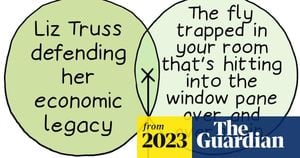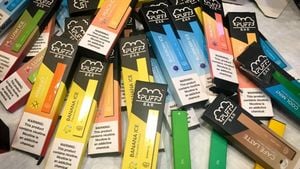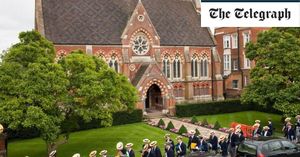On November 1, 2024, Algeria witnessed significant political and social ripples with the release of prominent journalist Ihsane El Kadi, who was recently pardoned by President Abdelmadjid Tebboune. This gesture was part of a broader amnesty commemorated on the 70th anniversary of Algeria's independence war against France. El Kadi's release has been hailed by supporters as a hopeful sign for press freedoms and democratic expression within the country.
El Kadi, 65, had been serving time for charges linked to receiving foreign funding and allegedly threatening state security. His detention was initially viewed by many as emblematic of Algeria's broader crackdown on dissent, particularly against independent journalists and voices during the sustained Hirak protest movement, which began in 2019 and successfully pushed longtime President Abdelaziz Bouteflika out of office.
Details surrounding El Kadi's case reveal much about the complex relationship between the Algerian government and its media. He had led Interface Medias, managing outlets such as Radio M and Maghreb Emergent, both of which became key platforms during the Hirak protests. El Kadi was first arrested under accusations of undermining state security back in December 2022.
Following his legal battle, he received a seven-year sentence — the maximum penalty under local laws against media entities accepting overseas funding. The piano of his daughter, who made financial transactions from the UK, was at the heart of the legal argument, with El Kadi's lawyers insisting the funds were intended only to settle debts. Despite their defense, the court not only sentenced him but also ordered the dissolution of both his media outlets and imposed hefty fines amounting to approximately $86,200.
Upon his release, the atmosphere was filled with joy and relief. His lawyer, Noureddine Ahmine, expressed the elation of family and supporters as El Kadi reunited with loved ones, signifying the end of what many described as 'a nightmare.' Social media was abuzz with reactions, including statements from others advocating for free press rights. For example, Reporters Without Borders expressed “immense relief” over El Kadi being freed, and hoped for this release to signal the broader uplifting of restrictions facing journalists.
El Kadi's imprisonment and subsequent release accentuated certain inevitabilities within Algeria's political narrative, roots of the Hirak protests, as well as the existing tensions between the military regime and societal aspirations for freedom and democracy. His presence was also noted among fellow inmates released on the same day under pardons aimed at easing governmental pressures.
Alongside El Kadi, other journalists and activists were freed, including poet Mohamed Tadjadit. Tadjadit became popular during the Hirak protests for his poignant contributions to the protest culture, and his release echoed the same themes of liberation and renewal felt across many social circles.
The significance of this development extends beyond the individual stories of El Kadi and Tadjadit; it raises questions about the future of press freedoms and the prospects for political reforms within Algeria. Following their releases, activists from various factions celebrated, hoping such moves might indicate changing tides within the typically oppressive media environment of Algeria.
Yet, skepticism remains. The current global and local political climate suggests precarious balances to power dynamics, as the push for reform competes against ingrained practices of repression. For El Kadi, who had been regarded as one of the rare independent voices still active during the protests, the future could still hold challenges — raising awareness of the continuous repression by authorities against other dissenting voices.
To date, Algeria ranks 139 out of 180 countries on the 2024 World Press Freedom Index, indicating widespread concerns about journalism's state within the nation. The future will depend heavily on how the Algerian authorities interpret popular feedback as they navigate through national celebrations of independence versus the realities of public quelling.
El Kadi's release marks not just the liberation of one man but also serves as the reopening of dialogues about political repression, media freedom, and the power of collective voices sustaining movements throughout Algeria.



